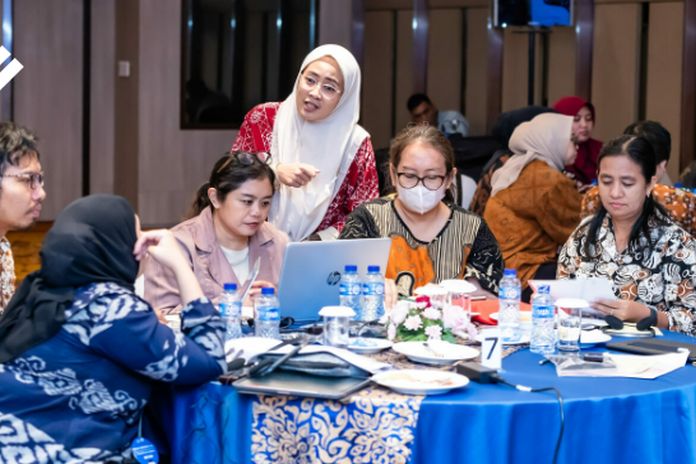SWITZERLAND / INDONESIA – Policymakers in Indonesia are moving to mainstream gender into trade policies, in line with a training organized by the International Trade Centre (ITC) and the Trade Policy Agency of the Ministry of Trade, with support from the United Kingdom Foreign, Commonwealth and Development Office (FCDO).
The one-day event on 6 August brought policymakers and other trade experts together at the Hotel Borobudur in Jakarta to discuss practical ways to move towards a more gender-inclusive trade landscape in the country, through the activities of their trade and small business ministries and trade support institutions. They learned to use trade agreements to tackle gender equality issues, make public procurement systems more inclusive, collect data and engage with government and women stakeholders, and craft an action plan and a monitoring and evaluation framework.
Kasan Muhri, head of trade policy agency of the ministry of trade, said:
“The ministry of trade in Indonesia can leverage the knowledge gained from SheTrades training for policymakers to create a more inclusive and equitable trade ecosystem in Indonesia, empowering women to contribute fully to the country’s economic growth.”
“We’re taking a big-picture view of what gender mainstreaming looks like here and around the world,” said Dorothy Tembo, ITC deputy executive director. “We heard about what has worked well in other contexts and how these approaches might be adapted here, drawing from examples ranging from national trade strategies to public procurement regulations. We hope these ideas for what gender mainstreaming can look like in Indonesia can also be shared with colleagues outside the realm of trade policy – because lasting change requires a whole-of-government and whole-of-society approach.”
‘From Design to Evaluation: Making Trade Policy Work for Women’
The International Trade Centre is the joint agency of the World Trade Organization and the United Nations. ITC assists small and medium-sized enterprises in developing and transition economies to become more competitive in global markets, thereby contributing to sustainable economic development within the frameworks of the Aid-for-Trade agenda and the United Nations’ Sustainable Development Goals.





